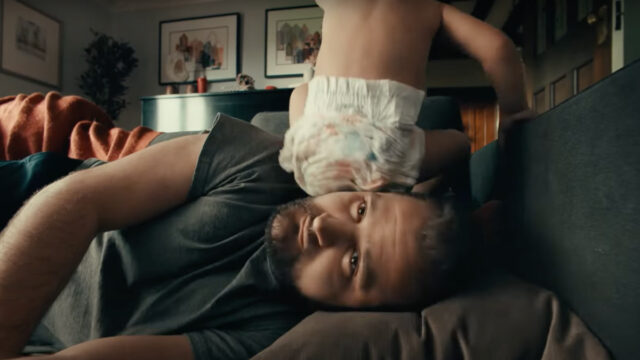Don’t miss Brandweek, Adweek’s ultimate experience for marketers, September 11-14 in Miami. Connect with peers and gain insights and inspiration from top brand marketers and industry icons at Glossier, Coca-Cola, Taco Bell and more. Register.
Trigger Warning: This article contains references to eating disorders
In 2018, Jameela Jamil opened Instagram and clicked the “search” icon button. It led her to the “Discovery” tab, where up popped an image carousel showcasing famous women with numbers written across their body.
The figures detailed each woman’s weight and measurements. After interacting with that single post, Jamil was “bombarded” with imagery glamorizing diet and weight loss.
“Never click that button,” she cautioned. Yet, if she hadn’t done so and posted about her experience soon after, she might not be sitting behind the podcast mic now on I Weigh, interviewing the likes of Busy Philipps and Jillian Mercado about mental health, body image and smashing societal norms.
Like all activism, [I Weigh] was born from rage and hope
—Jameela Jamil, Founder, I Weigh
“This movement started with a Tweet,” she told Adweek, “now it’s morphed into a brand, a community and a podcast. When we built ‘I Weigh’, we wanted our tagline to be that we want to make women feel smarter and happier, not thinner and younger.”
“Like all activism, it was born from rage and hope,” she said, speaking fresh from Cannes Lions in June, where she had been addressing marketers.
When Jamil sent “I Weigh” out into the world, she initially called out advertisers for turning body positivity into a “marketing slogan.”
Many of the world’s biggest brands, including Disney and Nike, are fully aware of that critique and have doubled down on body-positivity messaging. It’s the entire mission of Dove’s “Self Esteem Project,” which has resulted in campaigns including “The Reverse Selfie” and reached 95 million young girls with the mission addressing what the Unilever-owned advertiser calls “a public health crisis.”
Jamil wants to see the world’s biggest advertisers celebrating all bodies and doing more to make women, and men, feel comfortable in their own skin. She also has a message from CMOs looking to collaborate with platforms like her own: you don’t have to be perfect, but you have to be actively seeking change.
A reciprocal audience relationship
Jamil might be best known in the U.S. for her role as the exuberantly upper-crust Tahani in NBC’s The Good Place and She-Hulk: Attorney at Law. She’s also about to add a role in Pixar’s upcoming film, Elio. Her new podcast, “Bad Dates,” sees her talk to comedians, celebrities and friends about their romantic experiences and misfires.


